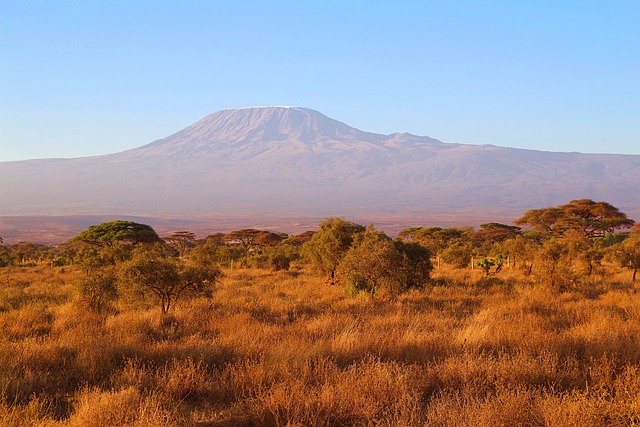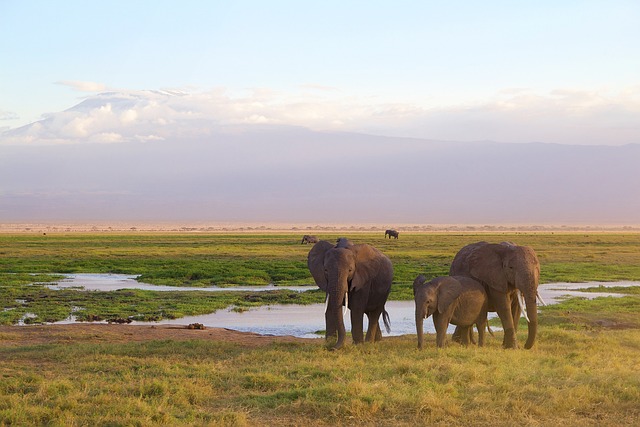Located at the foot of Mount Kilimanjaro, Amboseli National Park is one of the most visited tourist destinations in Kenya. However, this iconic park is facing a critical threat due to the impact of climate change. In recent years, there has been a noticeable decline in the park’s wildlife population and a change in its ecosystem. This is because climate change has caused changes in weather patterns, rainfall, and temperatures, which are having a profound impact on the park’s Flora and Fauna.

Climate change has a significant impact on the wildlife and ecosystem of Amboseli National Park in Kenya.
The Park is home to a diverse range of wildlife, including elephants, giraffes, lions, and many other species. These animals rely on the park’s natural resources and ecosystem to survive. However, climate change has caused changes in Amboseli’s weather patterns, leading to prolonged droughts, unpredictable rainfall, and rising temperatures. The wildlife in Amboseli has been affected by these changes in weather patterns. For example, prolonged droughts have resulted in a shortage of water and vegetation, which has led to the death of some animals. Animals such as elephants, which require a lot of water for survival, have to travel long distances to find water, which can be hazardous for their health as they can easily succumb to dehydration.
The rise in temperature has also led to the melting of Mount Kilimanjaro’s glaciers, which has resulted in a reduction of the water flowing into the park. Furthermore, climate change has also contributed to the spread of diseases among the wildlife in Amboseli. As the weather patterns continue to change, the environment becomes more favorable for disease vectors such as mosquitoes to thrive. This has led to an increase in the number of diseases among animals, leading to a reduction in their populations. In conclusion, the impact of climate change on Amboseli National Park’s wildlife and ecosystem has been significant. It is essential to take action to mitigate the negative effects of climate change and prevent further damage to the park’s ecosystem.

In response to this crisis, conservation efforts have been put in place to mitigate the impact of climate change. Conservation efforts play a critical role in mitigating the impact of climate change on the Amboseli National Park.
For example, park authorities have implemented water conservation programs to ensure that the park’s water supply is protected. This involves reducing water usage and improving the quality of water resources by removing pollutants. The Park has also implemented measures to reduce carbon emissions, such as using solar energy and biomass for cooking and heating. Another way conservation efforts are being implemented is through ecosystem restoration. This involves planting native trees and vegetation, which will help to rebuild the park’s ecosystem and restore the balance of the food chain.
Ecosystem restoration can help to prevent soil erosion, reduce greenhouse gas emissions, and provide habitat for wildlife. Education campaigns have also been put into place to raise awareness about the impact of climate change on the park and its inhabitants. This is particularly important because the local communities living near the park play a critical role in its protection. By educating the public, park authorities hope to encourage people to live sustainably and to protect the park’s environment. In conclusion, conservation efforts are critical for mitigating the impact of climate change on the Amboseli National Park.
These efforts are not only essential for protecting the park’s ecosystem, but also for ensuring that it remains a vital habitat for wildlife and a key attraction for tourists. By working together, we can help to preserve this unique ecosystem for generations to come. With the right conservation efforts, we can ensure that Amboseli National Park remains a thriving ecosystem that provides benefits to all.
Work done and compiled by group 6 members
- Daniel Ndolo
- Abel Ludeki
- Breen Muhonja
